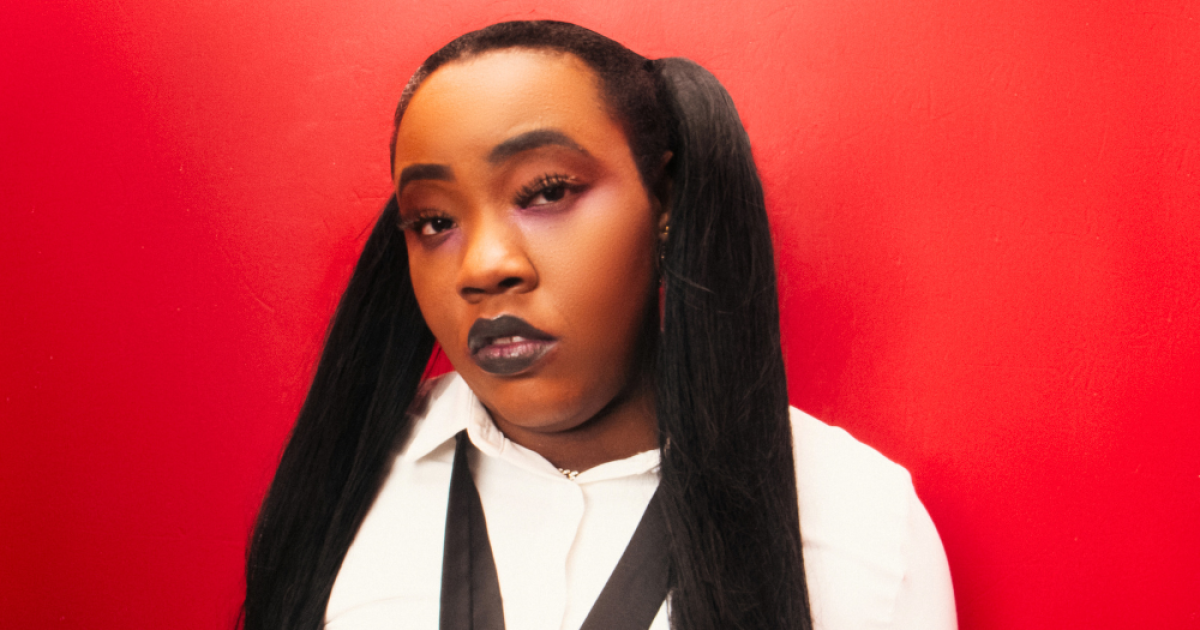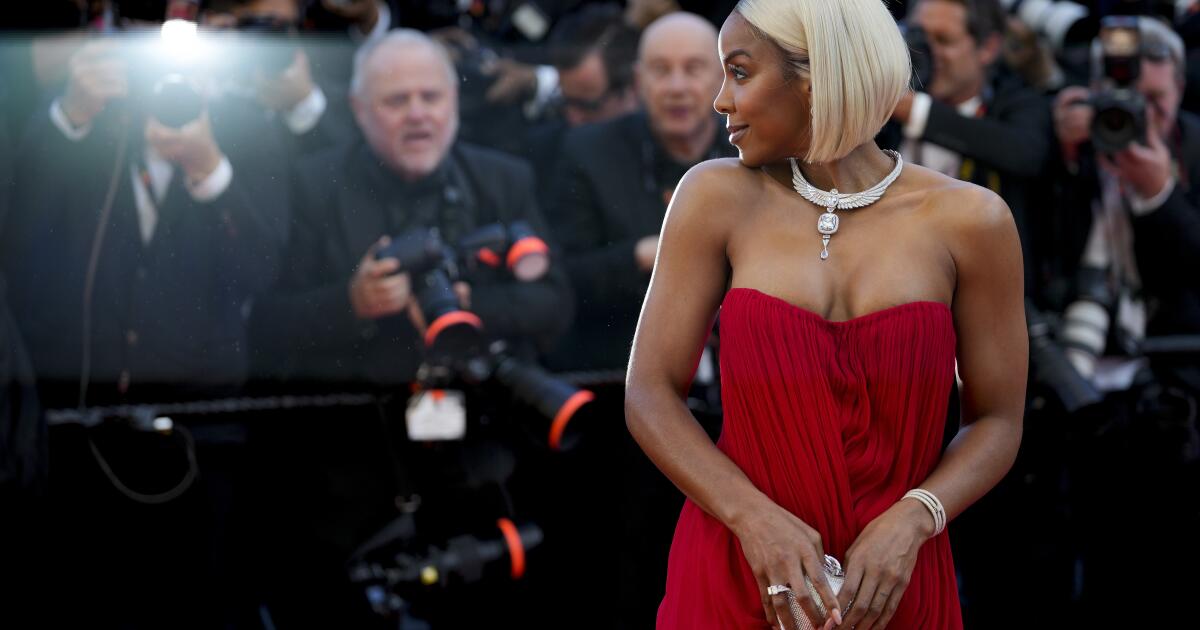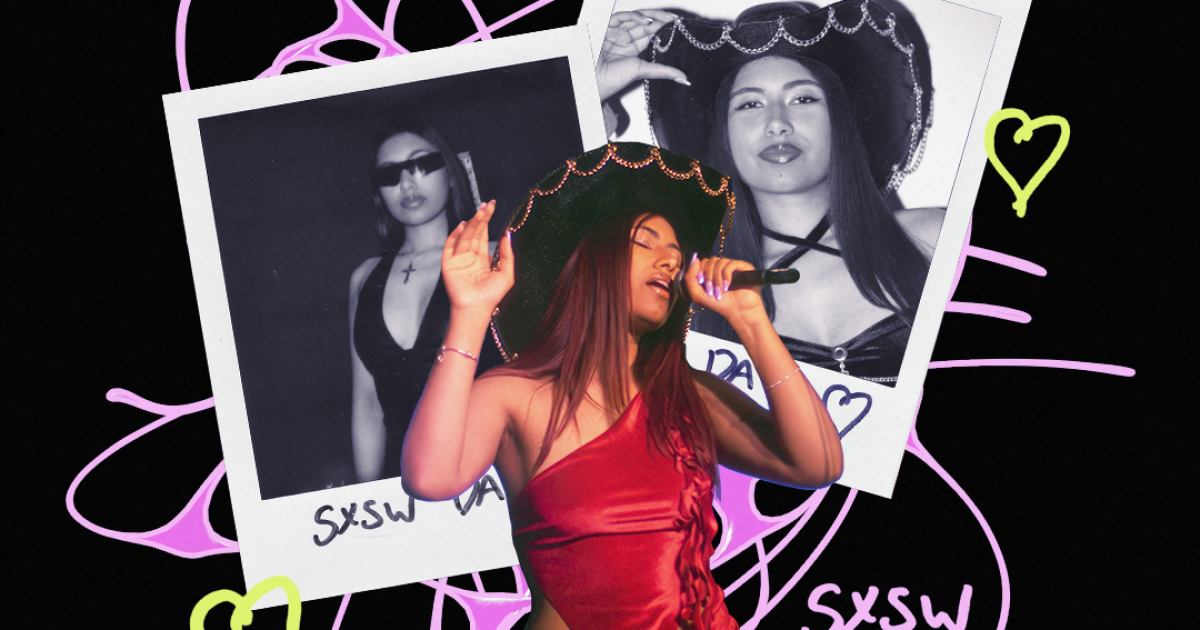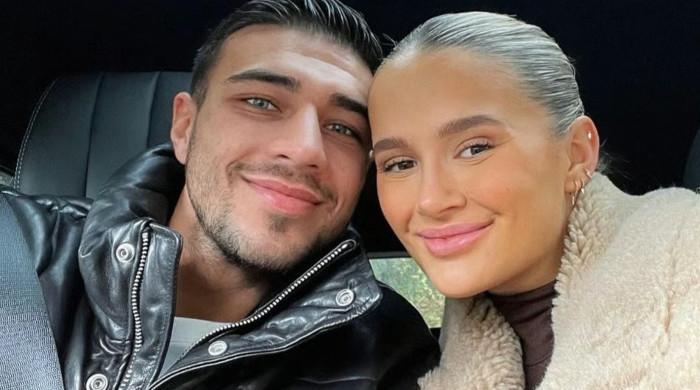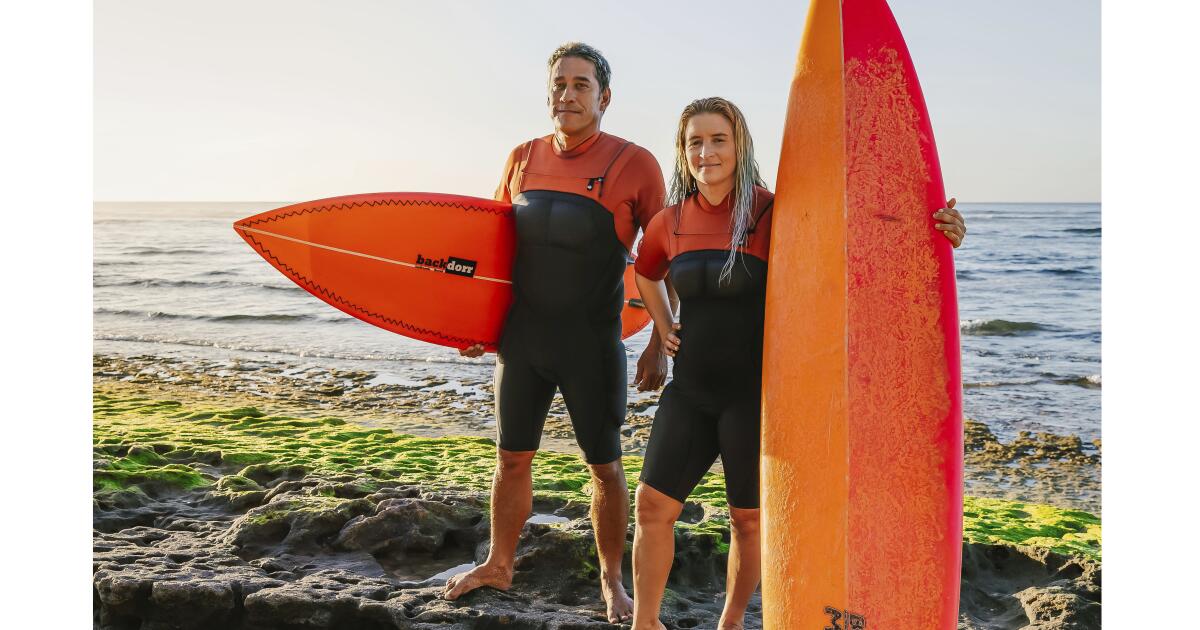Katelina Eccleston, better known as “La Gata,” discovered her love for reggaeton on the dance floor of a quinceañera party. When the lights dimmed and she started moving her body to the beat, she knew there was more to explore. After dedicating her life to the genre, the internet personality is back with a new, elevated season of the podcast “Perreo 101.”
Reggaeton Con La Gata, the platform founded by the 30-year-old academic, tells the history and cultural impact of the genre to an online audience. In 2017, Eccleston began sharing her analysis and understanding of popular music with roots in Puerto Rico through Twitter threads. As her following grew, she started the podcast “Perreo 101” in 2018 and began lecturing on the topic at universities across the country.
In its early days, “Perreo 101” was all about audio. Eccleston compiled information into explanatory episodes that included some interviews. The idea was to turn his viral posts, like the history of reggaeton, into audio stories. For the past six years, the series has remained sporadic and informal.
With the new season, which debuted in July, Eccleston is bringing a fresh take to the bilingual podcast. He has a new set with audio and video capabilities, but his teachings on ethnomusicology and reggaeton remain the same. Guests include reggaeton singers Deevani, La Sista and Puerto Rican rapper Villano Antillano; the space welcomes different perspectives on Latin music.
This interview has been lightly edited for clarity and length.
Reggaeton Con La Gata focuses on the untold stories and misconceptions of the genre. When did you start thinking about the musical style on a more critical level?
In my student years, I say this without shame, I survived an assault. I was furious. I knew I had to put that anger somewhere. I needed to find out what made me happy. I turned to music in a way I hadn't before and found it to be very healing.
I changed my major and studied for a degree in communications at Marymount Manhattan College, where I was eager to pursue the idea of always including reggaeton in my work. I discovered the work of Dr. Marisol LeBrón. [author of “Policing Life and Death: Race, Violence, and Resistance in Puerto Rico”]Wayne Marshall and Raquel Rivera [contributing authors of “Reggaeton”]I realized that people had already thought about this. It inspired me to really look at reggaeton in the context of the world, not just my experience, but politics and things of that nature.
You started the music-focused platform at university. How did it come about? he Where does the podcast come from?
I actually didn’t even know what a podcast was when I created “Perreo 101.” A fan of mine suggested the idea to me. He told me to stop tweeting my ideas and instead record them and upload them as a podcast.
The first few episodes reflected conversations I had been having on Twitter. By that point, I had already gone viral a couple of times. I was at the forefront of the conversation about what reggaeton is and isn’t, as well as the war that has since died down between Panamanians and Puerto Ricans. My podcast helped facilitate that conversation.
“Perreo 101” began in 2018. Looking back on those early episodes, what has changed over the years?
It's a new era. Before, it was very sporadic and I was just kind of vibrating with the culture. I didn't understand anything. Every week on Twitter there was a discussion and I was like, “Oh, I'll show them.” I would make an episode and play songs that related to the things that came to my mind. I was just a girl who loved this genre and tried to emphasize that this genre is intelligent and deserves respect.
The episodes were released in both English and Spanish. How important was this?
It was a very conscious decision because I am lucky enough to be bilingual. I grew up in Boston and I still live in Boston. It's practically like a little Dominican Republic. [Dominican Republic.] There are more Dominicans in Boston than any other immigrant group. My Spanish is Dominicanized as hell.
I recognize that this is an international conversation. I want people from Colombia, Argentina, Chile, Spain, and France to participate. I don't want it to ever be an excuse that they don't understand me. I wanted to make sure that even artists could participate because they understand me and, if necessary, I would translate. I wanted it to be transnational.
There are more podcasts now. In the context of the current audio landscape, what does this resurgence mean?
I always say this: not everyone needs to have a microphone. I don't say this as an enemy, but having an audience is a responsibility. When you open your mouth, people listen to you.
I started Radio Menea with Verónica Bayetti Flores and Miriam Zoila Pérez, Host of Mala Muñoz and Diosa Femme at the same time. It was very nice because we were a community and we respected each other's intellectual property, culture, ideas. We learned from each other. We pushed each other. We emerged together. It's definitely different now.
The trajectory of “Perreo 101” had an unconventional kind of union. It has been taught and assigned in classrooms for six semesters straight. The sound design may have been a disaster relative to industry standards, but now people are resonating with what I’m saying and also the storytelling style. I wanted to tell the story exactly the way I speak. That’s how I want to be heard. I’m not putting on a different voice.
What does this new season of “Perreo 101” bring to Reggaetón Con La Gata?
It’s a reiteration of what’s already been said, so a lot of things will sound familiar. It’s an emphasis on things I’ve learned since then. In one of the first episodes, “Evolution of Roots,” I remember saying, “There’s no reggaeton without reggae.” Five years later, I wouldn’t agree with that, I’d say, “No dancehall.”
The beauty of this new season is that I have guests. I'm not just educating the public with what I have to say, but I'm getting lessons from all the guests.
It's an extremely humbling experience, but I think that's the most beautiful part of the podcast now. It's elevated stories compared to what was out there before. I was partly ranting, partly giving my perspective in musicology, partly giving my perspective regarding culture and analyzing in the midst of all that.
How did you get your followers to trust you?
Honestly, it's been about transparency. I think everyone appreciates the way I talk. I'm not adopting a corporate voice to try to appeal to a certain audience.
I'm me everywhere. I swore it at Harvard. It's going to happen. If you know me and love me, that's what's going to happen and you're going to have to deal with it. I just want my credit and my respect.
I think what everyone has been able to witness, with my platform, is the grace that I allow others. I am not the only person in this conversation nor am I trying to be. I don’t believe in cancel culture. I’m going to diss Bad Bunny and still dance to “Safaera.” Being consistent with that duality has allowed people to stop and think. We all need more pause because we’re all angry and anger is valid.
This podcast revival is accompanied by an original album, also called “Perreo 101,” to accompany each episode. How does this change the listening experience?
As I thought about revamping “Perreo 101,” I say what’s already been said and add new vocals, which is even better. But I’m a nerd for the actual sounds of reggaeton and I realized I would love for people to join me in hearing what these instruments are without the distraction of lyricism. I want them to hear how beautiful it is and how danceable it is. I want people to hear cubatón, rumba, salsa, and Dem Bow underneath.
I don't want lyrics. I want to hear the instruments because that's how I listen to reggaeton. Do we want to go deeper? Do we want to disconnect? Do we want to connect? It's for whatever function we assign to it. For me, a lot of times when I listen to reggaeton, the lyrics are great, but sometimes I just zone out. I don't even hear what's being said. I'm so enthralled by the rhythm.
What would you say is the optimal way to listen to the podcast and the album?
I would listen to the song, then the podcast, then the song again, and see if that changed their perspective on the arrangement. I want to invite people to think about what they would add to it. I want them to think about what's there and how they would approach it differently, as well as think about it critically.

